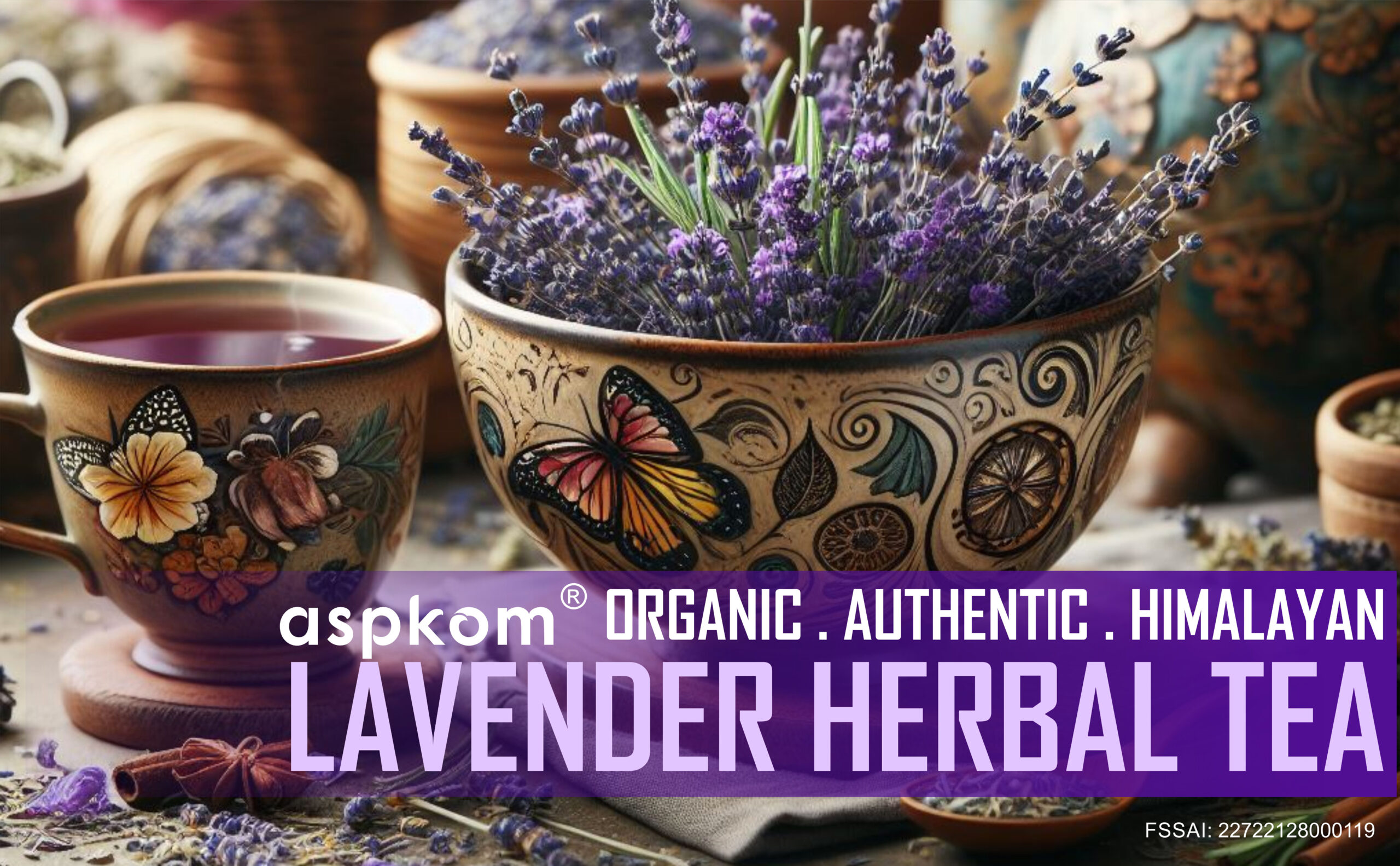Himalayan Lavender Tea – Your Pure Organic Brew for Serenity and Wellness
Transport yourself to tranquility with aspkom’s Himalayan Lavender Tea, a blend of pure, organic lavender flowers sourced from the pristine Himalayan region. Delicately dried lavender blooms infuse this aromatic tea with soothing properties, making it an ideal choice for stress relief and promoting restful sleep. Elevate your mood and enhance your wellness journey with each calming sip of this Himalayan stress relief elixir. Embrace the therapeutic benefits of lavender as you indulge in a cup of pure relaxation. Let Aspkom’s Himalayan Lavender Tea be your companion in achieving holistic serenity and well-being.
aspkom Lavender Tea Health Benefits
Lavender tea offers a plethora of health benefits, making it a popular choice for both its soothing aroma and therapeutic properties. Here are some of the key health benefits associated with lavender tea:
- Promotes Relaxation and Stress Relief: Lavender tea contains compounds like linalool and linalyl acetate, which have calming effects on the nervous system, helping to alleviate stress, anxiety, and tension.
- Aids in Better Sleep: Drinking lavender tea before bedtime can promote better sleep quality by inducing relaxation and easing insomnia symptoms. Its soothing properties help calm the mind and prepare the body for a restful night’s sleep.
- Supports Digestive Health: Lavender tea has been traditionally used to alleviate digestive issues such as bloating, gas, and stomach discomfort. It may help to soothe the digestive tract and relieve symptoms of indigestion.
- Antioxidant Properties: Lavender tea is rich in antioxidants, which help protect the body from oxidative stress and reduce inflammation. These antioxidants may contribute to overall health and well-being.
- Relieves Headaches and Migraines: The calming properties of lavender tea can help ease tension headaches and migraines. Drinking lavender tea or inhaling its aroma may provide relief from headache symptoms.
- Boosts Mood and Mental Health: Lavender tea may have mood-enhancing effects, promoting feelings of relaxation, calmness, and well-being. It can be beneficial for those experiencing mild depression or mood swings.
- Skin Health: Some studies suggest that lavender tea may have anti-inflammatory and antibacterial properties, making it beneficial for skin health. It may help soothe skin irritations, reduce acne, and promote a clearer complexion.
Overall, incorporating lavender tea into your daily routine can provide a range of health benefits, from promoting relaxation and sleep to supporting digestive health and boosting mood. However, it’s essential to consult with a healthcare professional before using lavender tea as a remedy for any specific health condition, especially if you have any underlying health concerns or are pregnant or nursing.
Nutritional Value of Lavender Tea
Lavender tea is primarily valued for its aromatic and soothing properties rather than its nutritional content. However, here’s a general overview of the potential nutritional components found in lavender tea:
- Amino Acids: Lavender tea may contain trace amounts of amino acids, which are the building blocks of proteins. While lavender itself is not a significant source of protein, it may contain some essential and non-essential amino acids.
- Vitamins: Lavender tea is not a significant source of vitamins, but it may contain small amounts of vitamin C, vitamin A, and vitamin K, depending on factors such as how it’s prepared and whether other ingredients are added.
- Minerals: Lavender tea may contain trace amounts of minerals such as calcium, iron, and magnesium, which are naturally present in the lavender plant. However, the concentration of minerals in lavender tea is generally low.
- Antioxidants: Lavender tea may contain antioxidants such as polyphenols and flavonoids, which help protect the body from oxidative stress and reduce inflammation. These antioxidants are also responsible for some of lavender’s potential health benefits.
- Fatty Acids: Lavender tea is not a significant source of fatty acids. While some essential fatty acids may be present in trace amounts, they are unlikely to contribute significantly to the overall nutritional value of the tea.
- Carbohydrates: Lavender tea is virtually calorie-free and very low in carbohydrates. It contains no fat or cholesterol, making it a suitable beverage for those watching their carbohydrate intake.











